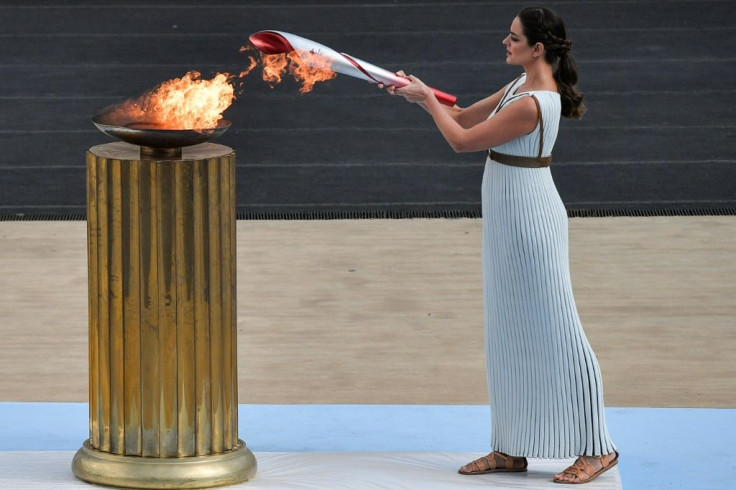Olympic Flame Arrives In China Ahead Of 2022 Beijing Games
The Olympic flame arrived in China early Wednesday for the Beijing 2022 Winter Games, state media reported, following a ceremony in Athens overshadowed by protests over China's human rights record.
The flame was expected to go on display at a ceremony at the Beijing Olympic Tower before going on an exhibition tour, state media and the International Olympic Committee said.
Around 2,900 athletes, representing approximately 85 National Olympic Committees, will compete in the Winter Games between 4 and 20 February 2022.
The flame was lit in Athens on Monday and transferred the following day to the organisers of the Beijing Games, but the lighting ceremony was disrupted by activists.
Protesters urged the IOC to postpone the event, arguing that China was perpetrating "genocide" against Uyghurs and Tibetans.
During the lighting ceremony in Olympia on Monday, activists unfurled a Tibetan flag and a banner that read "no genocide" at the Games. A similar protest was held at the Acropolis in Athens on Sunday.

Human rights campaigners and exiles say the Chinese central government practises religious repression, torture, forced sterilisation and cultural erosion through forced re-education.
Campaigners believe that at least one million Uyghurs and other Turkic-speaking, mostly Muslim minorities have been incarcerated in camps in Xinjiang.
After initially denying the existence of the Xinjiang camps, China later defended them as vocational training centres aimed at reducing the appeal of Islamic extremism.
There have also been calls for athletes and governments to boycott the Games.
IOC chairman Thomas Bach has batted off talk of a potential boycott, claiming the International Olympic Committee's political neutrality and saying it was up to governments to live up to their responsibilities.
A victim of the 1980 Moscow Games boycott, the former fencer has said such moves only punish athletes, and insists the IOC is addressing the rights issue "within our remit".
© Copyright AFP 2024. All rights reserved.




















